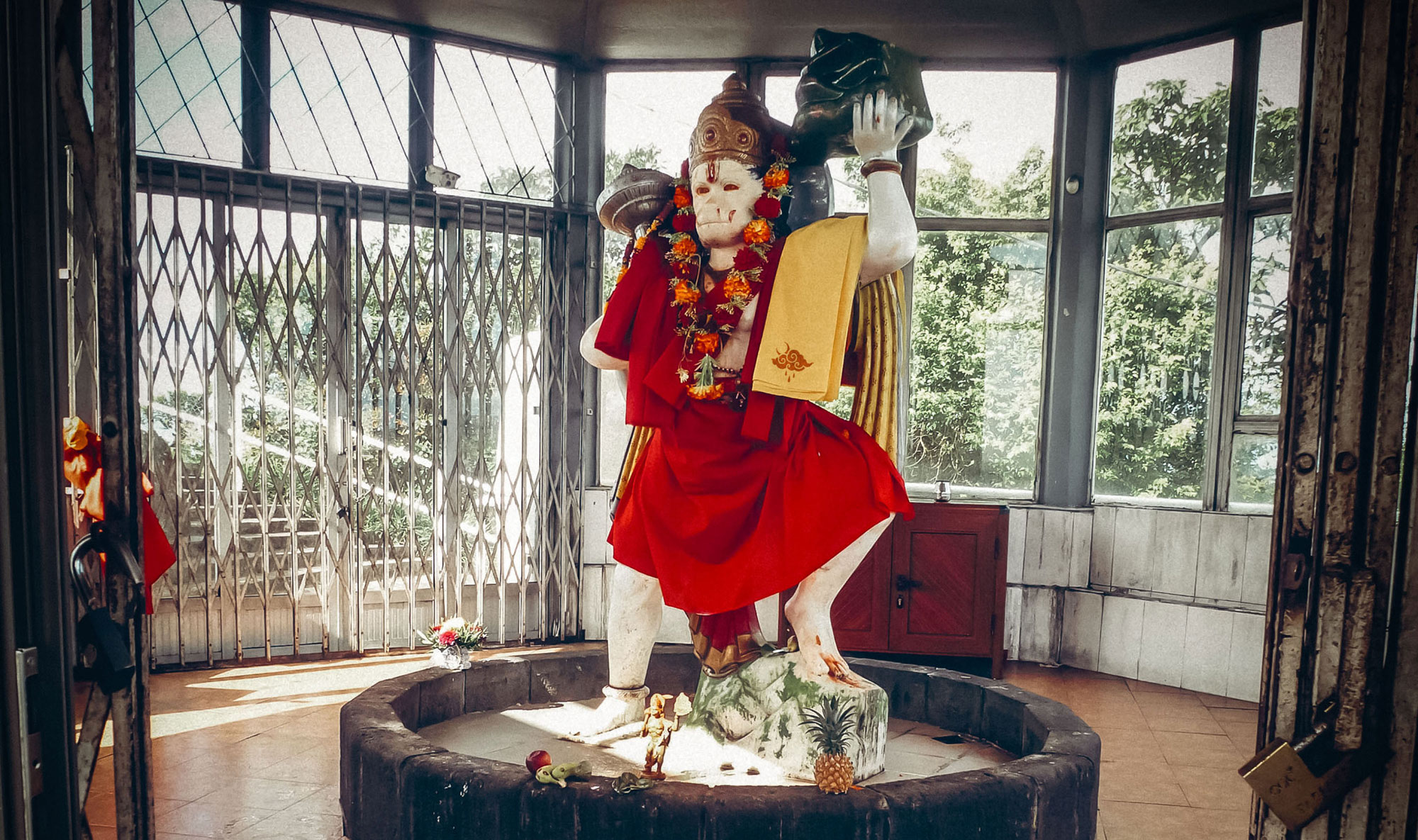The Essence of Timeless Leadership: Lessons from Ancient Wisdom
Some wisdom transcends time and space. Certain stories carry profound truths—truths that inspire us, strengthen us, and help us see our path more clearly. One such story is the Ramayana, one of the most revered epics of Indian culture. Written over two thousand years ago, its lessons remain invaluable today. It tells the journey of Prince Rama, his beloved wife Sita, and his devoted ally Hanuman—the monkey god whose unwavering dedication, courage, and wisdom make him a timeless symbol of mindful leadership.
Reading the Ramayana again recently, I was struck by how much this ancient tale has to offer for modern life—especially when it comes to mindfulness. The epic reminds us of the importance of staying anchored in the present, acting with awareness rather than being swept away by external circumstances. And this isn’t just relevant for leaders; it applies to all of us. Whether in our careers or personal lives, the qualities embodied by Hanuman—clarity, compassion, and inner strength—help us navigate life with greater wisdom and resilience.
In a world that’s constantly shifting and often pulling us off balance, being present, acting intentionally, and staying centered has never been more crucial. Mindfulness is the key to remaining grounded amidst life’s challenges. The Ramayana teaches us that true strength doesn’t come from control or dominance but from inner stillness and deep awareness. Hanuman exemplifies this perfectly: he moves with unwavering devotion, undistracted by doubts or external chaos.
As someone deeply immersed in Eastern philosophy, mindfulness, and personal transformation, I’d like to share a few reflections for gentle contemplation. The Ramayana offers powerful insights into how mindfulness and presence can guide us to make wiser decisions, react less impulsively, and cultivate more fulfilling relationships. Hanuman, in particular, embodies qualities that serve as profound lessons for us all—emotional intelligence, humility, strategic thinking, and a deep, unshakable calm that arises from being fully present in the moment.
Even if you’ve never encountered the Ramayana before, I invite you to explore its wisdom. You might discover something that speaks to you—something that strengthens, inspires, or moves you on your own journey, in your work, in your relationships, and on your unique path in life.

Hanuman – Incarnation of Shiva
Hanuman, an incarnation of Shiva, is one of India’s most cherished deities. His devotion and friendship with Rāma and Sita epitomize “Dasya Bhava”, the devoted love of a servant for his Lord. Ultimately, Hanuman’s legendary physical strength and iron will, complemented by several key qualities, make him a timeless role model:
Unwavering Devotion – The Power of Service
Hanuman’s greatest strength lies in his selfless devotion (bhakti). He doesn’t act out of ego or self-interest but from a profound sense of connection and loyalty. His mission is clear: to serve, to support, and to do what is right—without seeking recognition or reward. In a world often driven by self-optimization and ego-driven leadership, Hanuman reminds us that true greatness lies in standing for something beyond ourselves. A truly inspiring person isn’t the one who seeks personal gain first, but the one who lifts others up and helps them grow.
Courage and Determination – Pushing Beyond Your Limits
Hanuman is the ultimate example of courage—not the kind that comes from arrogance, but the kind that arises from deep trust and conviction. When he leaps across the ocean to find Sita, he doesn’t know if he will succeed—but he jumps anyway. This trust in one’s potential is essential if we want to make an impact. It’s about facing challenges head-on with an open heart rather than avoiding them. True strength isn’t the absence of fear; it’s the ability to move forward despite it.
Emotional Intelligence
One of Hanuman’s most remarkable traits is his emotional intelligence. He has an extraordinary ability to perceive the emotions of others and respond with deep empathy. This allows him to build strong connections—not just with his companions but with divine beings as well. His compassion and understanding enable him to bridge gaps and foster collaboration even in the most difficult situations. In today’s world, emotional intelligence is more essential than ever, especially for leaders. It builds trust, inspires loyalty, and strengthens teams.
Effective Communication
Hanuman is a master communicator—not just through words, but through active listening, keen observation, and deep empathy. As Rama’s envoy, he convinces Vibhishana (Ravana’s brother) to align with Rama, a decision that ultimately shifts the course of the war. This kind of clear, compassionate communication is invaluable today. It builds trust, conveys vision, and moves people to take action.
Humility – The Strength of Letting Go of Ego
Despite his extraordinary abilities, Hanuman remains humble. He doesn’t see himself as a hero but as a servant of something greater. This humility is what makes him one of the most revered figures in the Ramayana. In a world where success is often confused with self-promotion, humility is a rare but incredibly powerful quality. The most inspiring people aren’t those who shout the loudest but those who act with quiet confidence, mindfulness, and authenticity.
Calmness and Determination
The Ramayana shows how Hanuman remains calm and composed in the face of adversity. This inner stability allows him to make clear decisions and act with purpose. In an unpredictable world, such qualities are essential. Those who lead with calmness and clarity not only empower themselves but also create a sense of security, balance, and optimism for those around them.
Strategic Thinking – Wisdom in Action
Hanuman is not just fearless; he is also a brilliant strategist. He combines physical strength with sharp intellect and foresight. He knows when to fight and when diplomacy is the wiser path. This ability to act wisely rather than impulsively is more relevant than ever in today’s fast-paced world. In an era of constant distractions, Hanuman’s strategic mindset teaches us the power of staying focused and making thoughtful choices.
Honesty and Integrity
Hanuman’s character is defined by unwavering honesty and deep integrity. As Rama’s devoted servant, he lives by the principles of dharma, following his inner truth with absolute sincerity. Integrity and authenticity are just as crucial for modern leaders—they form the foundation of trust, ethical decision-making, and lasting relationships.
Collaboration and True Teamwork
Hanuman embodies the essence of teamwork. As a key figure in King Sugriva’s army, he works alongside others with deep respect and cooperation. This is especially evident in the building of the Ram Setu bridge between India and Lanka—a monumental feat accomplished through collective effort. True leadership is about fostering collaboration at every level, creating an environment of mutual respect, and empowering people to achieve great things together.
Relentless Willpower – The Art of Perseverance
One of Hanuman’s most inspiring qualities is his unshakable determination. No matter how difficult the situation, he never gives up. His strength comes not just from his abilities but from his unwavering willpower. When it comes to making meaningful changes in life, talent and luck matter far less than the ability to keep going—especially when obstacles arise.
What We Can Learn from Hanuman?
Hanuman embodies the traits of a truly powerful, inspiring, and compassionate leader—qualities that remain just as relevant in today’s world. His devotion, courage, humility, intelligence, and perseverance reflect timeless principles that can help us live more consciously and meaningfully.
Whether or not you’re familiar with the Ramayana, Hanuman’s story can be a source of inspiration. It reminds us that true strength is not found in dominance but in love. Not in control, but in trust. And not in ego, but in the ability to give wholeheartedly—right here, in this very moment.
Perhaps Hanuman serves as a reminder of what truly matters—for your own journey, your work, your relationships, and your unique path in life.
Thank you for your attention!
Jay Shri Hanuman.




